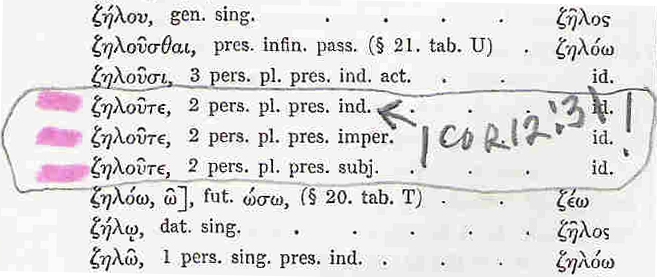
"zeloute" in 1 Cor 12:31 is one of the few "ambiguous" verbs in the New Testament Greek.
Three entries for "zeloute" in the Zondervan Analytical Greek Lexicon:

The exact ambiguous word form of "zeloute" occurs four other times in the New Testament:
1. In 1 Cor. 14:1 where the context calls for the imperative mood and every translation I have checked correctly translates "zeloute" as the "imperative" of "command"Many commentators and Bible editors, in their references to 1 Cor 12:31 point to "zeloute" in 1 Cor 14:1 - where Paul states "Follow after charity, (agape love) and desire (zeloute) spiritual [gifts], but rather that ye may prophesy", as "justification" for translating "zeloute" in 1 Cor 12:31 in the "imperative" mood of "command". But, the word "gifts" in 1 Cor 14:1 is in "italics" and is not in the Greek text, but has been added by the translators. 1 Cor 14:1 is stating "seek to be spiritual", or "seek spiritual things", and "zeloute" there is correctly translated in the "imperative" mood, but it does not state for us to seek, or choose spiritual "gifts".